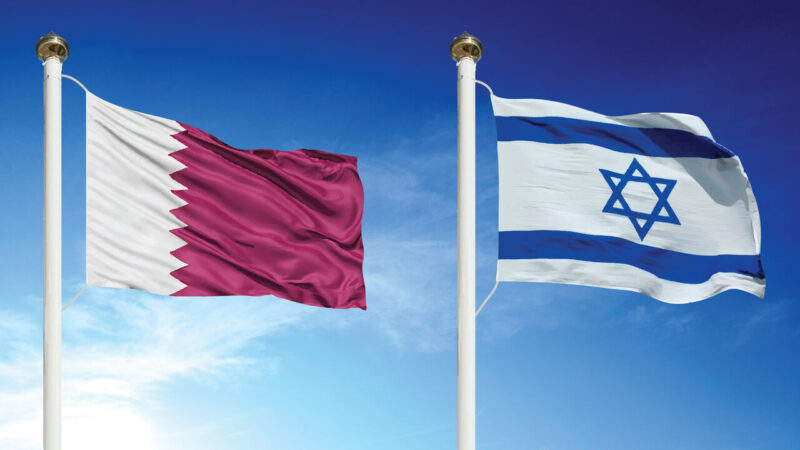Understanding Middle East Political Dynamics
The Middle East has long been a hotspot for geopolitical tensions. Nations in the region often navigate complex alliances and rivalries, influencing global politics. Analyzing these dynamics helps understand the broader consequences of events like Israel attacked on Qatar. Shifts in alliances or military actions can alter regional stability, affecting energy markets, international trade, and diplomatic negotiations.
Economic Implications for Global Markets
Global markets are highly sensitive to geopolitical disruptions. When conflicts arise in the Middle East, oil prices often surge, and investors react cautiously. Countries dependent on energy imports may face increased costs, while stock markets experience volatility. Evaluating the economic ripple effects helps businesses and governments prepare for potential challenges in trade, logistics, and financial planning.
Regional Security Concerns and Military Strategy
Security in the Gulf region is critical due to strategic trade routes and military installations. Military actions or threats impact not only the involved countries but also neighboring nations. Defense strategies, alliances, and intelligence operations play crucial roles in maintaining stability. Understanding these security frameworks offers insight into how regional powers respond to crises.
Historical Conflicts and Their Influence
Historical tensions often shape current events. Past disputes between Middle Eastern nations create a backdrop for understanding contemporary actions. Lessons from previous conflicts can guide diplomatic responses, military planning, and humanitarian efforts. Awareness of historical context helps analysts predict potential escalations and resolutions.
Humanitarian Impact and Crisis Management
Conflict inevitably affects civilians through displacement, resource shortages, and health crises. Humanitarian organizations must quickly coordinate aid, often navigating dangerous conditions. Effective crisis management involves international cooperation, logistics planning, and timely resource distribution. Studying these responses highlights the importance of preparedness in conflict zones.
Diplomatic Negotiations and Peace Efforts
Diplomacy remains a key tool in resolving tensions. Negotiations involve multilateral discussions, mediators, and careful communication. Successful diplomatic efforts can prevent escalation, foster cooperation, and maintain trade relations. Observing diplomatic strategies provides insight into how nations aim to balance power while avoiding full-scale conflicts.
Energy Security and Oil Supply Chains
Energy infrastructure is a vital component of regional stability. Disruptions in oil production or transport can have far-reaching consequences for global energy security. Countries often diversify supply routes and build strategic reserves to mitigate risks. Understanding energy logistics and contingency planning is essential for governments and multinational corporations.
Public Opinion and Media Influence
Media coverage significantly shapes public perception of geopolitical events. Social media, news outlets, and international reporting influence how citizens and governments respond. Public opinion can pressure policymakers, affect election outcomes, and sway international support. Examining media narratives helps explain the broader societal impact of military or political actions.
Cybersecurity Threats and Digital Warfare
Modern conflicts increasingly involve cyber operations targeting critical infrastructure. Cyberattacks can disrupt communication, financial systems, and military networks. Nations invest heavily in digital defense mechanisms to protect sensitive information and maintain operational capabilities. Awareness of cybersecurity risks is crucial for both governmental agencies and private organizations.
Regional Alliances and International Relations
Alliances among nations dictate strategic decision-making in crisis scenarios. Military pacts, trade agreements, and political coalitions influence responses to conflicts. Observing these relationships reveals potential support networks or oppositions, shaping the outcome of any regional confrontation.
Technological Advancements in Defense
Modern militaries leverage technology to enhance surveillance, intelligence, and combat efficiency. Drones, satellite monitoring, and precision-guided systems redefine conflict strategies. Understanding technological trends helps anticipate changes in defense postures and operational effectiveness.
Cultural Impact and Social Stability
Cultural factors affect national resilience during conflicts. Social cohesion, public morale, and community networks influence how societies cope with disruptions. Recognizing cultural dimensions aids humanitarian efforts, policymaking, and media communications.
Future Predictions and Geopolitical Forecasting
Predicting future developments involves analyzing current trends, alliances, and historical patterns. Forecasting helps governments and organizations prepare for potential scenarios, manage risks, and strategize responses. Considering multiple perspectives ensures a comprehensive understanding of potential outcomes.
International Law and Legal Implications
Conflicts raise questions about adherence to international law. Legal frameworks regulate military conduct, human rights protections, and territorial sovereignty. Legal analysis provides insight into accountability measures, sanctions, and dispute resolutions in global forums.
Economic Recovery and Reconstruction Strategies
Post-conflict reconstruction involves rebuilding infrastructure, stabilizing economies, and restoring public services. Strategic planning ensures efficient allocation of resources, long-term stability, and investor confidence. Lessons from previous recovery efforts guide policymakers in mitigating future vulnerabilities.
Strategic Communication and Government Messaging
Clear communication from governments shapes public perception and international credibility. Transparent updates, factual reporting, and effective messaging prevent misinformation and panic. Evaluating communication strategies highlights the role of narrative control during crises.
Israel Attacked On Qatar: Analysis and Regional Fallout
The recent incident of Israel attacked on Qatar has triggered widespread concern across the Gulf region. Leaders from neighboring countries are closely monitoring developments, while international bodies urge restraint. The event underscores the fragile balance of regional politics, highlighting both immediate and long-term consequences for trade, security, and diplomatic relations.
Social Media Reactions and Online Discourse
Digital platforms have amplified reactions to geopolitical events. Citizens, analysts, and journalists engage in debates, share firsthand accounts, and mobilize support. Understanding online discourse provides insight into public sentiment and potential influences on policy decisions.
Environmental Risks and Infrastructure Damage
Conflicts can severely impact environmental stability. Damage to industrial sites, transportation networks, and energy facilities poses risks of pollution, resource depletion, and long-term ecological harm. Addressing these risks requires coordinated planning, monitoring, and mitigation strategies.
Global Collaboration and Policy Responses
International cooperation is essential to manage regional crises effectively. Multilateral organizations, alliances, and cross-border initiatives help coordinate humanitarian aid, diplomatic pressure, and economic support. Examining these collaborative efforts offers insights into how the global community responds to emerging conflicts.

